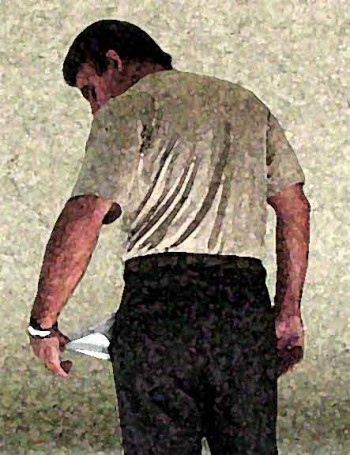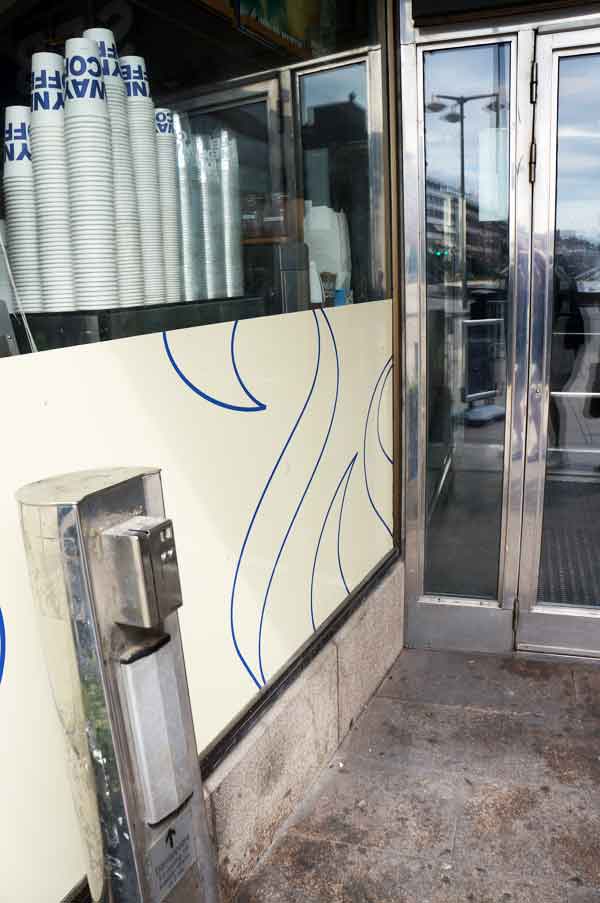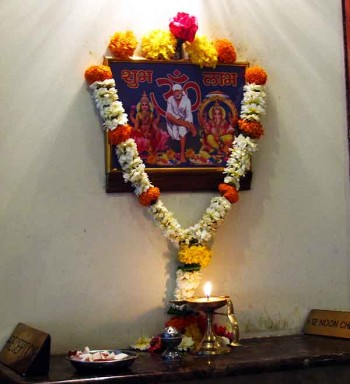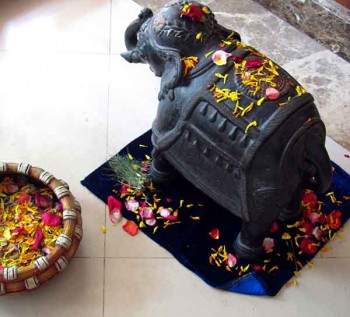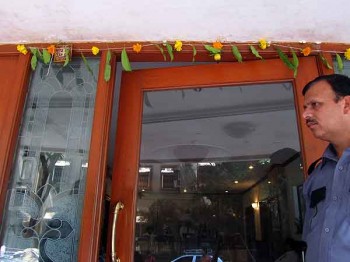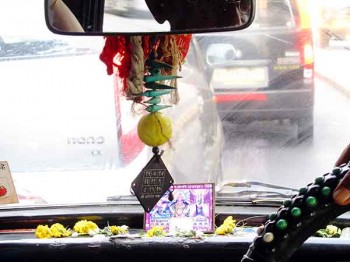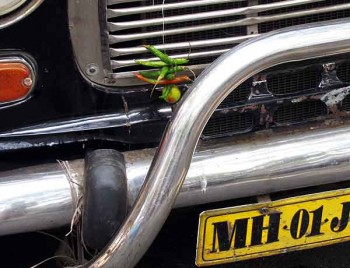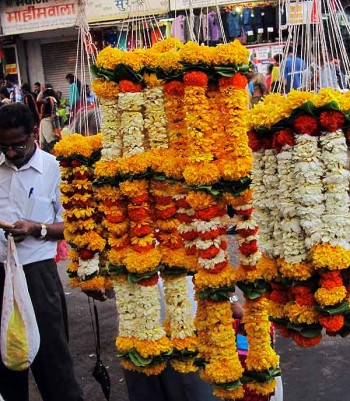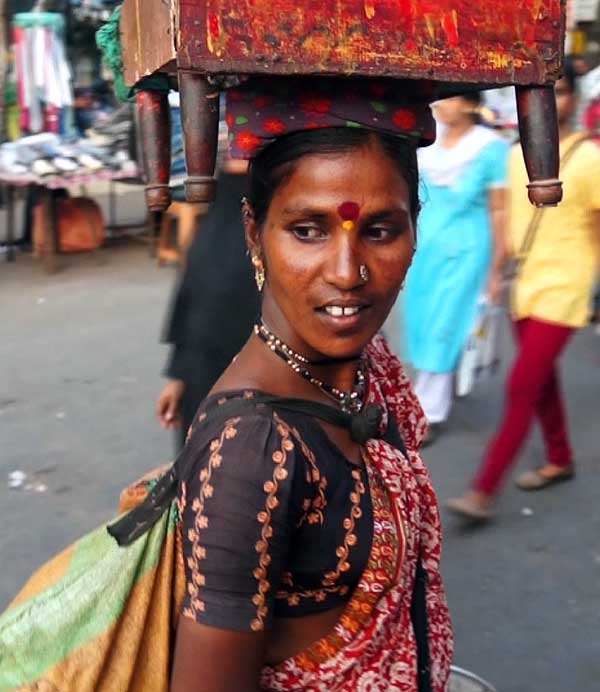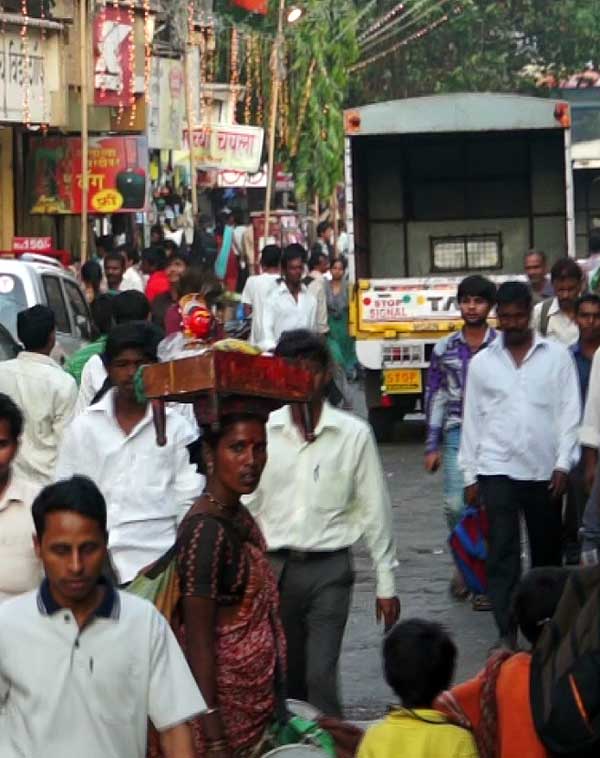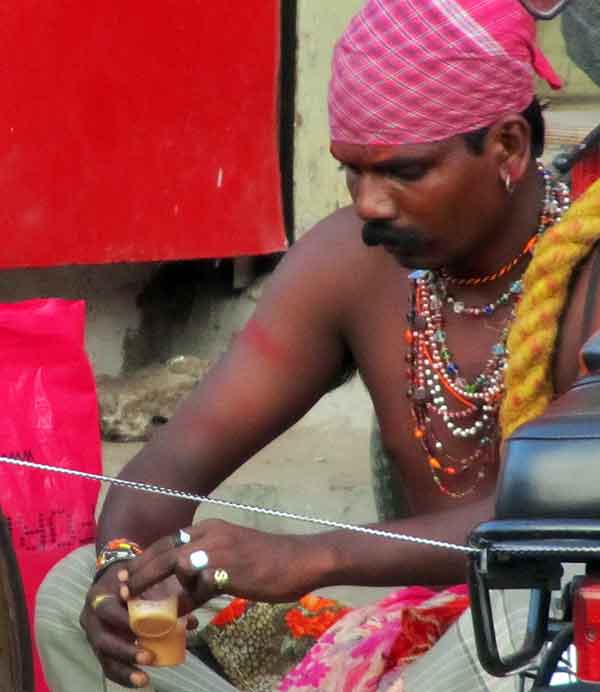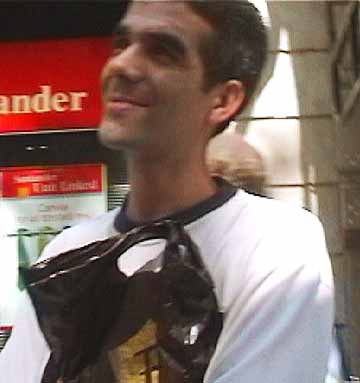
Kharem is another opportunist who doubles as a minor-league strategist. When we first met him, he was prowling the perimeter of a breakdance performance near the top of La Rambla. He carried a black plastic bag to cover his hand as he unzipped the duffel-bags of spectators.
“My job is pickpocket. I have this job seventeen years,” he said in English, over coffee in a little restaurant, then launched into French, telling us that he worked in Paris for twelve years until he was expelled from France. He left a little girl there.
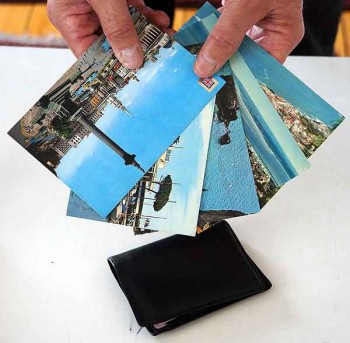
Kharem raised the plastic bag from his lap and put it on the table. He had a “unique technique,” he explained, his own method, something he invented and believes he is alone in using. He opened his plastic bag to show a handful of Barcelona postcards. He fanned the postcards and extended them to me across the table, as if offering them for sale. Then he withdrew them, leaned back in his chair with satisfaction, and tipped up the cards. Beneath them, he’d swiped my empty coffee cup.
He does this on La Rambla, Kharem told us with pride, where he approaches diners at outdoor cafés. When he removes the fan of postcards, he takes a wallet or camera with it.
Apparently, Kharem doesn’t realize that this is a fairly common technique used in internet cafés. Websurfers, intent on their email or gaming, often set a wallet, credit card, or cellphone on the desk in front of them, beside the keyboard. Perhaps Kharem did invent the postcard trick, but he’s not alone in using it. This “unique technique” vanishes so many valuables from right under noses that many internet cafés flash warnings on screen.
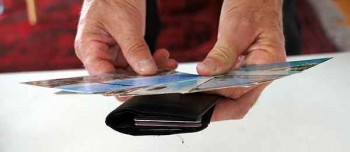
That’s how Jennifer Faust, of Canada, lost her wallet. She had it next to her keyboard at Easy Everything internet point on La Rambla. Jennifer, though, had filled out our Theft First Aid form, and therefore easily canceled her credit card accounts. Still, in the hour that passed while she fetched her Theft First Aid sheet, about $100 had been charged to one of her cards. This particular internet point, now called Easy Internet, has over 350 terminals in long rows, and the facility is open to anyone who cares to wander in. On our visits there, we spotted several teams, at different times, carrying packs of dog-eared postcards.
Excerpt from Travel Advisory: How to Avoid Thefts, Cons, and Street Scams
Chapter Seven: Scams—By the Devious Strategist
Interview with Kharem
Kharem: Confessions of an Airport Thief
Kharem: Multi-talented Thief



